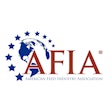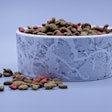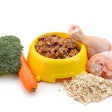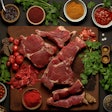As most readers are aware, the National Research Council (NRC), under the auspices of the National Academies, published its long-awaited Nutrient Requirements of Dogs and Cats last summer (see Petfood Industry , August 2006). While NRC is not a regulatory body, its reports are considered by agencies such as the US Food and Drug Administration (FDA) in determining policy.
What readers may not know is that another NRC committee, whose report may also affect petfood and pet supplement manufacturers, has been convened. The Committee on Examining the Safety of Dietary Supplements for Horses, Dogs and Cats held its first meeting in Washington, DC, USA, in late April. Its report should be published within a year.
Background
The Center for Veterinary Medicine in FDA sponsored this committee. Its request for a report from NRC stems from issues with regulation of "dietary supplement" ingredients in products for animals. In the case of products for human consumption, ingredients meeting the statutory definition of "dietary supplement" under the Dietary Supplement Health and Education Act (DSHEA) are effectively granted certain exemptions from the laws applicable to the same ingredients when offered in conventional food form.
For example, echinacea can be a component of a human dietary supplement provided no disease treatment/prevention claims are made (some "support" claims are allowed). However, if a chicken soup or similar food product contains the same ingredient, it may be subject to regulation as an adulterated food by virtue of it containing an unapproved food additive, even without claims.
Regardless of this distinction on the human product side, FDA has opined that DSHEA does not apply to any product intended for consumption by animals. This means the prevailing law (Federal Food, Drug and Cosmetic Act) applies to all products containing unapproved ingredients, whether in dietary supplement form or conventional food form.
Despite the agency's position, many animal products on the market (in either form) contain unapproved ingredients or ingredients for unapproved intended uses. Enforcement actions by federal and state agencies have been taken against violative products. FDA is also reported to be considering the categorization of some of these products in nonconventional food forms as "unapproved drugs of low regulatory priority" to better control the marketplace. However, whether ultimately regulated as "foods" or "drugs," the concern for safety remains.
FDA would prefer to expend its time and efforts dealing with products that present real safety risks to the animals consuming them. Traditional means of evaluating the safety of substances are quite extensive and costly, though.
Further, because of the nature of the test and the practical limitations of petfood and pet supplement manufacturers to conduct these studies, these data are unlikely ever to be available. How, then, does FDA assess safety without this information?
Committee composition and charge
Although its composition has not been finalized at the time of this writing, the committee of eight persons is expected to be composed of experts in the fields of nutrition, toxicology and pharmacology. Its members will be from both academia and industry. Two probable members are employees of petfood manufacturers, although one was selected more for her expertise in equine nutrition rather than nutrition of dogs and cats.
The charge to the committee is to provide a framework for assessing the safety of substances where traditional data may be lacking. To accomplish this, the committee will focus on three specific substances that represent a range of typical dietary supplement ingredients: garlic, lutein and evening primrose oil. Although garlic is already codified as "generally recognized as safe" (GRAS) as a flavor under FDA regulations, less is known about its safety for other uses at higher levels.
It is anticipated that through the process of collecting, examining and reporting on data relating to the safety of these specific substances, the committee will be able to use its experience to also offer recommendations on methods to assess the safety of ingredients in general. FDA may then choose to follow those recommendations in evaluating products on the market and/or establishing its enforcement priorities.
It is important to note that this committee is to focus on safety in horses, dogs and cats only. By intentionally avoiding the study of use of these substances in food-producing animals, this limits the need to consider the complicating safety issues related to potential residues in milk, meat or eggs. Also important is that for purposes of this study, the committee must assume that the substances in question may be incorporated into the petfood/horse feed by the manufacturer or may be offered as a stand-alone product to either mix in food/feed or to administer to the animal separately from the rest of its diet. In any case, though, it is just for substances intended to be orally consumed.
Need more information?
Details on the scope of the project, biographies of the committee members and other information can be found online. Updates on the project, including summaries of past meetings and announcements of future meetings, should appear on the National Academies website on a timely basis. The website also provides an opportunity for the public to provide feedback on the project. The page can be reached by going to www.nas.edu, clicking on "Current Projects" and then finding the "Examining the Safety of Dietary Supplements for Horses, Dogs and Cats" link.
As the sponsor of the project, FDA may be presumed to be the recipient of the most benefit from the committee's final report. However, most petfood and pet supplement manufacturers who are using or contemplating use of these types of ingredients may find it useful as well. The public session of the first meeting was attended by a number of interested parties, including the American Feed Industry Association, the United States Pharmacopeia, the National Institute of Health's Office of Dietary Supplements and the National Animal Supplement Council. Members of these organizations may also wish to contact these groups for more information.














